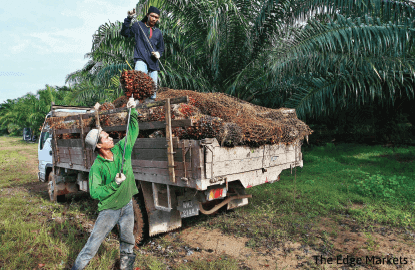
This article first appeared in The Edge Malaysia Weekly, on April 11 - 17, 2016.
The move by the Roundtable on Sustainable Palm Oil (RSPO) to temporarily suspend the certification of IOI Corp Bhd — one of its founding members — for all of its palm oil production on April 1 probably caught the industry by surprise.
The complaint against IOI Corp was lodged by Aid Environment, which alleged that the group’s plantation subsidiaries in Indonesia — PT Sukses Karya Sawit, PT Berkat Nabati Sawit and PT Bumi Sawit Sejahtera — had violated several RSPO principles and criteria.
The repercussions for IOI Group seem severe.
Shortly after the suspension was announced, Unilever — one of the world’s largest buyers of palm and palm kernel oil and refined products — announced that it was in the process of disengaging with IOI Group over the next three months. US food giants Mars Incorporated and Kellogg’s have also started the process of cancelling supplies from IOI Loders Croklaan, the group’s specialty oils and fat subsidiary.
While the episode serves as a lesson for RSPO members that no one can be spared the scrutiny of non-governmental organisations (NGOs) and environmentalists, it also raises the question of whether plantation businesses have ceded too much say to them.
Some planters certainly think that is the case. A check on the RSPO’s complaints page shows that many Malaysian planters have, at some point, been subject to the ire of NGOs.
“The RSPO principles and criteria are definitely stricter now and planters have come under more scrutiny by the public. When there are complaints, the RSPO panel is quick to take action. It’s not necessarily a bad thing,” says a Malaysian planter.

“I agree that sustainability is an important aspect of being a responsible planter. But I do feel that the planters do not have enough say at RSPO’s panel, which has more NGOs and consumer groups than planters,” he adds.
Another complaint is that policies on the standards change from time to time. For example, early this year, RSPO introduced “RSPO NEXT” as a voluntary add-on to its existing principles and criteria for sustainably grown palm oil. While RSPO’s response to such allegations is that it has to keep up with the changes, some lament that the changing standards are like a moving goal post.
Many would not dispute that it is good for sustainability when planting is controlled but some say the stricter principles and criteria regarding new planting may cause a slowdown in palm oil supply several years down the road.
There are 16 members on RSPO’s board of governors, with four seats going to oil palm growers and another two to palm oil processors and traders. The remaining 10 are taken up by NGOs and consumer groups. Unilever and United Plantations Bhd are co-chairmen of the board.
A market expert says RSPO certification is a necessity for market access to Europe and the US, and may also be required by big international brand names in China and India.
There are others in the industry who see the RSPO certification more as a trade restriction than a benefit for the industry, or in the interest of sustainability. One planter says the company he manages will eventually have to register as a RSPO member. “There is no choice, really. All the big brands require certified sustainable palm oil and if you want to be able to sell to them, you have got to toe the line,” he reasons.
Currently, 21% of global palm oil is certified as sustainable but experts say the market for it is less than that, indicating excess capacity. Yet, there is still a relatively attractive premium for certified sustainable palm oil.
People familiar with the trading of certified sustainable palm oil say mass balance crude palm oil can fetch a premium of US$15 per tonne while the premium on mass balance palm stearin is about US$40 per tonne.
The premium for mass balance crude palm kernel oil ranges from US$75 to US$85 per tonne while that for segregated crude palm kernel oil is the highest at US$100 per tonne, although its volume is limited.
In the mass balance supply chain model, certified sustainable palm oil is mixed with conventional palm oil while in the segregated supply chain model, palm oil is derived from several certified sources.
Market experts say, however, that the premium isn’t fixed and largely depends on negotiations between buyer and seller.
So, are the players who set out to form the RSPO in the early 2000s with good intentions for the plantation industry now finding themselves worse off amid negative publicity and loss of market share?
“There seems to be a lack of strong coordination among planters, unlike in the soybean and canola industries. Plantation companies seem to use sustainability to compete against each other and lack a neutral policy-setting body. It seems to be driven by individual commercial interests instead,” says a market observer.
Surprisingly, despite the efforts of organisations such as the Malaysian Palm Oil Council to counter negative perceptions of palm oil in other markets, there are some who feel there is a void that needs to be filled. Asked if there are any efforts at coordinating planters so they can act in unison in confronting the NGOs, a planter says tersely, “No, there is none. Who’s going to drive it?”
Save by subscribing to us for your print and/or digital copy.
P/S: The Edge is also available on Apple's AppStore and Androids' Google Play.